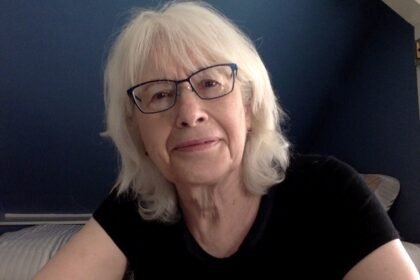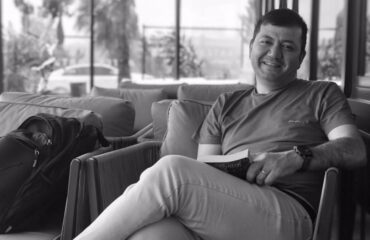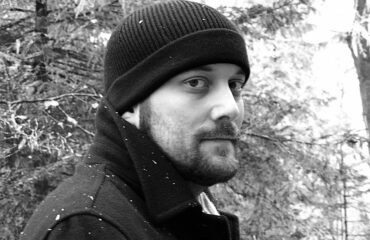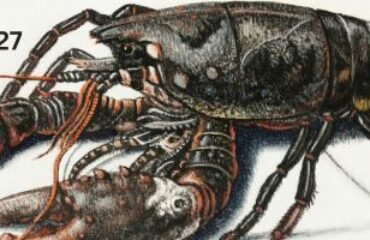ASUNCION FEVER by Beverly Burch

Asuncion Fever: Anxiety, Euphoria, Secrecy, Travesty, and Lost Culture
A twenty-four-hour flight—Miami, Sao Paulo, Asuncion—a decrepit taxi, a tired lawyer, an office far south, these are the beginning of what I remember. It was the unstoppable hunger some women feel, desire for a baby, that took us to Paraguay to begin a weeks-long adoption process.
Asuncion was drenched with heat, an old colonial city, gorgeous and faded. We were foggy and sleepless, flinging our hopeful English to the driver who picked us up like flailing swimmers who didn’t trust the water, and we didn’t, not enough to accept an iced drink. The car was not a taxi after all, but the car of our lawyer’s nephew, Mario. No door handles on one side, a huge dent in the rear, but he knew where to take us. Gran Hotel del Paraguay.
A different season there, different time zone, different people. We’d waited one-hundred-seventy-eight days, sentenced to uncertainty, a wait with no deadline and little communication. A mix-up of paperwork at the consulate, unanswered faxes and letters, information that kept changing—the months-long anxiety felt like imminent heartbreak. Asuncion fever, we called our condition, my wife and I.
The hotel was a former villa for Eliza Lynch, mistress to a nineteenth-century military ruler, Francisco Lopez, who led the country into a disastrous war that left it decimated. Our attorney was also named Lopez. Sra. Lopez was a powerful woman, politically liberal, who helped foreigners like us adopt children in Paraguay. There were no domestic adoptions, and abandoned children lived on the street. She was tired, our lawyer, we could tell, but warm even in her briskness.
We gave her wine we brought from California—in those days we could carry bottles onto planes—and an Annie Lennox CD for her daughter. She’d asked for that. Relax and wait, she said. The foster mother would bring the baby that afternoon.
Graciela, the foster mother, arrived on time (remarkable in Paraguay, we learned). She laid a five-month-old girl in my arms. Incomparable creature, she stared and stared at us. How could we think she was ours, laid in our arms so casually? But this baby felt meant for us, as if in that moment the cosmos made a necessary correction. We had to travel this far, to another continent, across time zones and languages, to meet up. Why? I didn’t know. We named her Ana Laura to honor her birth mother’s choice and our family lines.
In only a few hours we learned Ana’s heaving howls meant she needed to be walked up and down the colonnade of our hotel, where caged monkeys screeching in the lush courtyard’s tropical trees entertained her.
We boiled the water and fixed a bottle of formula to feed her, but she began wailing again. The formula clumped in the heat of the water; she couldn’t drink it. Blanca, a maid at the hotel, fixed a new bottle from the tap. With waves of her hands and her head shaking, she let us know we should not boil the water. No need. Of course, what did we think she had been drinking? Our first step into gringo stupidity.
Motherhood began. Our routine: sleep, walk, feed, sleep, walk, feed, nights like days, days, nights. We learned to trust the water, the food, the relentless uncertainty, the people, whose kindness overwhelmed us, waiters, drivers, maids, translators, clerks. People with so little who gave so much of what is most important.
____________
The next day, Thanksgiving in the US, the hotel served a feast of turkey to welcome Peace Corps workers who came from outlying regions for the holiday. Six or seven other adoptive parents, mostly women from the US and England, stayed in the hotel and we began sharing stories. A Paraguayan band, with an amazing small harp, serenaded. The national instrument, that harp, we saw them around the city and bought some CDs.
We began tramping to administrative offices, each a risky business. We were hiding, worried about discovery, me and my dear friend who came along to help with the baby. My dear friend, who slept in my bed, called herself the baby’s Mama only in private.
Every day summer hauled in more heat. Humidity soaked our loins and armpits. From courthouse to police station to embassy, we carried this downy being who’d begun to laugh when we lifted her. Mario, who had been a student in the US, served as translator and driver. Traffic in Asuncion obeyed no rules. He exhaled tranquillo at each near miss. Traffic laws are unenforced, he said, but if you have an accident you go to jail unless you’re injured. He kept a small knife in his glove compartment to cut himself in case of a crash, but we were fine as he was an artful dodger. All the cars seemed to be old luxury cars, BMWs, Jaguars, Mercedes, smuggled in from Brazil via Lake Itaipú. Like Annie Lennox CDs, auto parts are scarce, repairs are makeshift.
Nothing happened as planned, appointments were a flimsy notion. Blanca calmed our Anglo fears. Tranquillo, she said too, daily. In spite of the scorching heat she urged socks on the baby’s feet—frio frio—and sent us to the supermercado for pureed pears and chamomile tea to soothe Ana’s belly.
The well-heeled whites, taken care of in a poor country where babies languished. We never felt wealthy before, but now we saw, we admitted it, swallowed our unease and kept to the task. Stories of Americans whose demands and sense of entitlement infuriated Paraguayan people floated through our adoptive community and we endured every late appointment, delayed or cancelled meeting, all the postponements without complaint.
We were sent to a social worker who asked us to draw a picture of a family. Other adoptive parents alerted us: be sure to draw a mother and a father, with the child in between. Otherwise the social worker probes with further questions.
We went to court, spoke to the judge, signed rafts of legal papers retrieved somehow from one of the stacks piled on the judge’s floor. She stamped them here and there and Ana was legally in our custody. We took her to the police station for a passport. She sat on the counter while an officer gently pressed her foot to the inkpad and put it on paper. She laughed, delighted.
Everywhere people were warm, friendly. Everywhere people cooed at Ana, asked to hold her, embrace her. I was awed by them, how Ana enraptured even the men and strangers in shops. On the street a woman scolded us gently for using a stroller—why weren’t we carrying her in our arms? Only foreigners used strollers, but that was partly economics.
We made up games to play with Ana for the joy of her laughter. She slept peacefully in a crib in our room, began to eat well, loved to be held and walked, jiggled, kept in motion. One morning she had a little fever and we took her to Dr. Frutos who treated the babies. Just a bug, and soon she was well again. We bought European formula, which was more nutritional than the Paraguayan one. She had been premature and at five months weighed only twelve pounds, but she began putting on weight.
____________
Paraguay was a country of contradiction, just a few years past the dictatorship of the terrible Stroessner, who shielded Nazis and other dictators fleeing their own revolutions. The nation was trying to recover, still defined by poverty but hopefulness and political graffiti was everywhere. Our attorney was politically active with a liberation party.
Banks had guards with automatic rifles at the doors. We strolled Ana on tiled sidewalks. Along the river, people lived in makeshift cardboard structures (much like unsheltered people in our own country). It was safe for two women to walk after midnight, and we never bothered to lock our hotel room, not worried about theft in spite of the poverty. Flowers bloomed everywhere—bougainvillea, jasmine, lapacho trees with huge yellow flowers lined the street. In the River Paraguay islands of blue hyacinths choked the water.
Our lawyer was a friend of the domestic court judge, both women. When the court went on strike, including the judges, we couldn’t get our last papers signed for Ana Laura’s visa. It was mid-December. We were advised that flights to the U.S. would be booked from just before Christmas until mid-January. Everyone who could afford to go left for the U.S. over the holidays. Without a visa we’d be stranded another month unless we departed soon. Our attorney took the judge on a round-trip flight to Argentina so they could sign papers mid-air. Mario drove us to the judge’s home the next day, left us in the hot car for an hour then returned with signed papers. We had learned not to question.
I went alone to the US Embassy for a visa to avoid suspicion and was left in a solarium where the equatorial heat was ten degrees higher. Ana and I played finger games, I walked her, bounced her, tried to soothe her to sleep without success. After an hour a woman admitted us to her office to say the visa process would take many days. I pleaded. We needed to leave in two days as we had snagged one of the few seats left on the one airline out of Asuncion. She doubted my story and placed a call to American Airlines while I sat there. Annoyed when the story turned out to be true, she did the paperwork, scowling as she gave me a visa. We don’t like these adoptions, she said.
We gave our cash and stroller to Blanca, boarded a plane, ragged with euphoria, the way anyone chastened by the labor of child-getting dismisses it as they take the baby home. In flight a stewardess walked Ana in the aisle and asked who was the mother. We both are, we said. We could say it now. She looked puzzled. Later she came back to say, I get it, and gave us a bottle of champagne. Ana slept in a little bassinet the airlines offered. We tried to sleep too, two hours to Sao Paolo, eight to New York, six more to California. In San Francisco friends waved balloons at the airport, another had left dinner in our kitchen. New language, new smells, new water, everything changed for Ana.
____________
Twenty-five years later a story on CNN about an adoption case in Missouri unsettled me. A woman from Guatemala lost her eleven-month-old son in 2007 when ICE raided the chicken processing plant where she worked. She was not deported but incarcerated for two years. Her ten-month-old son was given to relatives, who turned to a clergyman for help; his wife gave the child to a white couple who wanted to adopt. A family court judge ruled that the boy had been abandoned and allowed the adoption to be legalized.
The mother in jail protested, but who could hear her? What was it like in an ICE prison? They don’t let many people in to see. What was her anxiety like, her months of uncertainty, powerlessness? Who helped her? No one. She spoke no English. When she was released, she was deported.
Eventually she made her way back to the States looking for him, a perilous, illegal journey across a border, back to the place where she didn’t speak the language, but this time she had the help of an attorney. I’m not sure how. The child, now five, had been with his adoptive parents all these years. He loved them, they loved him too and they fought to keep him. After all he had no memory of his birth mother. He spoke only English and was terrified of losing his parents, the only ones he knew.
A high court in Missouri agreed that taking the child was a travesty of justice. Adoption proceedings are closed, so we don’t know what was said, but in the end the adoption court ruled that the adoption was final and the child would not be returned. Another judge ruled that it was a “finished affair” and refused to mandate visiting privileges for the Guatemalan woman. The adoptive parents wouldn’t say if they would allow her to see him.
This story undid me. I’ve often thought about Francisca, the woman who birthed our daughter (her daughter). That’s three mothers for Ana Laura. Francisca chose adoption, but what kind of choice was it? We don’t know and can’t seem to find out. She was twenty-two, not married, possibly a student or so we were told.
The circumstances are all different, reversed in some ways, yet it mimicked ours too: a journey across a border to get a child, differences in money, power, protection. I couldn’t stop thinking of her. How should we weigh the mother’s misery against the child’s well-being? Who decides?
When we were in Asuncion we asked to meet Francisca. Possibly, our lawyer said. Wait until the process is done. Then, It’s not possible. Some family shame was involved, she thought, but she didn’t offer a solid reason and we doubted whether she ever contacted her. I have felt Francisca’s life shadowing ours, a murky history ripe for imagining. She had Ana (Laura) for three weeks because Ana was premature, too small to go into foster care.
While we were in Asuncion we visited Graciela, the woman in charge of her foster care. Graciela told us she kept Ana with her own mother for two months so she could grow stronger before she moved her into care.
The foster care itself was like a small orphanage, a house with twenty-two babies in four rooms, five women caring for them. Ana had slept in crib 17. When we stepped into the house, Ana began to wail, a banshee call. We held her tight, assured her we wouldn’t leave her there and didn’t stay long because she was so upset. She calmed as soon as we left.
The women murmured tenderly over Ana. Clearly they loved her. Graciela had taken her to a jeweler when she was three months to have her ears pierced. Quietly horrified, we understood it was a traditional gift for a girl. At the foster home the women noted with disapproval that we had taken her out in the sun, that her skin had darkened. Of course we took her out. She seemed pale to us. On another occasion someone called her eyes green because they were not dark brown. To us, they were brown, possibly hazel, with slight green flecks. These comments gave us clues to how whiteness was valued. We were taking her to a country where that would be more pronounced.
____________
After we came home, we sent photos to Graciela as she had requested. We also wrote letters to the attorney, made pleas for Francisca’s address. We got no replies, not unusual we had learned in our first days of waiting. We thought it might matter to Francisca to know the outcome, even to see pictures. We wondered if she’d want some financial help too and were undecided about the complexities of that. Certainly we could send her money, but suddenly it made the adoption feel more like a commercial transaction. Which it had been in some ways, fees to the agency in the Bay Area who arranged our adoption, to our attorney, Sra. Lopez.
We never knew exactly who got what amount of money. Even our departure from the Asuncion airport was expensive. We watched our attorney give envelopes of money to various officials at the airport to get us on the plane without being stopped, searched, or whatever. This was routine, we learned, not just something adoptive parents needed to do. If you wanted a smooth exit for your flight, envelopes of money were given.
When Ana was young, we talked a lot about adoption. She had many questions, but her main one was could she be ours forever? Could we always be hers? Yes and yes. There was a little game we played when she was small: we reenacted the scene when she was given to us. She would crawl into my arms and pretend to be a baby again. Over and over. She loved this game.
Once Ana asked, Would Francisca recognize me? Why does she never write? She was relieved and saddened to know that Francisca had no address for her and that we did not know how to reach her either.
We hired a woman who locates people in Paraguay. We had the photo on Francisca’s national ID card, her registration number, her birthplace. Paraguayans are required to register with the government every ten years. The investigator wrote back that she found no trace of her, no new registration had been recorded. She wanted more money—maybe she could go to her town and ask questions. We began to doubt her. Had Francisca disappeared, or not? Was she alive? Or had we been given false information? I have learned from others that in many cases “facts” in international adoptions are altered.
Lawyers, government agencies, sleuths: they’re like opaque walls. I keep wondering what the Missouri couple knew. I understood uncomfortably the feelings that made them fight for the boy. I understood the boy’s fear of losing them.
In truth, I was ambivalent about finding Francisca. If we located her, then what? Would she want to be contacted, to know about Ana? How much would I tell Francisca, especially would I reveal to Francisca that two women, married to each other, had become Ana’s (Laura’s) parents?
Some adoptions have happy endings. Some do not. Some leave wounds that fester a lifetime. Even in the happiest stories there’s loss as well as the euphoria. The birth mother and her loss, her difficult choice. The child and her loss, her difficult questions. The adoptive parents, their fears, their difficult questions. All parent-child stories involve wounds, but adoption is different, not the usual wounding, or rather, not only the usual wounding.
I know many adoptive families now, many with foreign adoptions. Every story is complicated, each with some uncertainties. Class differences, racial differences, financial differences exist in domestic adoptions too. Cultural imperialism. Doubts infect my mind. Did we have the right to take Ana from Paraguay? Was it best for her, for her birth mother? Questions that weren’t front-paged for me at the time, with our unstoppable desire for a child. Years to think them over.
The Missouri story still haunts me. We assume there was no coercion in our situation, with two legitimate adoptions agencies involved, people who seemed to care foremost about the children. In a country like Paraguay where domestic adoption is not legal, unwed mothers are shamed, and children might land on the streets. Was there money involved, aside from medical expenses? Should there have been? Definitely not. But maybe. Recompense of some kind—would that be just, or would it be inducement? These questions could drive one crazy.
Then there’s Ana. All our years now, all our love, our lives wrapped around each other’s. She’s grown, still grateful to be ours, thank God. She lives three blocks away, ours one of the happier stories. Complex feelings remain though. A blessing and a wound. Grateful not to be raised in Paraguay, she longs for a real connection to the part of her heritage that is not us.
It’s painful to know your child has a story outside of your own. Another mother. A person who mourned. Also painful is that Ana’s deepest experience is something we cannot know or share. Our racial difference, that she knows things as a brown woman, sees things, experiences things we white mothers do not know or cannot change.
Those non-Anglo experiences we had in Paraguay linger for us. Orange flowers, nightshade, lilies, jacaranda and passionflowers, the scent of streets and courtyards in Paraguay. Music in the restaurants, small-harp serenades, the sounds of Guarani and Spanish. These were briefly hers, then a new country with a different sensory palette took over.
Life is both harder and easier in Paraguay. Less pressure to achieve, more time for friends, family. Did we bring her to a good place, do we live in a good place? Notions of what’s better, of actual choice, seem illusory now. We have no story to put in her hands. Only a woman’s name, a photo, an uncertain history, an unknowable choice.
Children: all desire. Parents: all desire. So much desire. Stories lived half-finished, half-borne, forevered and done. Or undone. Never a finished affair.


